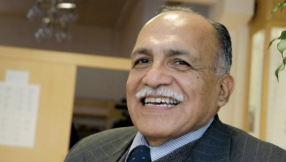
A campaign is underway to abolish the recording of “Non-Crime Hate Incidents” (NCHIs). What is an NCHI and why should we care if they are abolished or not?
NCHIs were devised by the College of Policing in 2014. If a person is accused of a “hate crime”, but a police investigation finds no evidence of a crime being committed, then it results in an NCHI being recorded.
Such a record can have serious repercussions, showing up on a person’s criminal record and appearing on advanced DBS checks, meaning that a person with an NCHI to their name might be barred from working as a teacher or in similar professions.
One of the great problems with the practice is that what passes for a “hate crime” is extremely subjective. The Free Speech Union, which has been campaigning against NCHIs for five years, gave the example of a man in Bedfordshire who was given an NCHI after his neighbour accused him of whistling “Bob the Builder” every time he saw him.
The vagaries of what constitutes a “hate crime” make it particularly vulnerable to misuse and abuse by police officers who are either out of their depth or actively malicious.
As conservative activist and “free speech absolutist” Carl Benjamin points out: “There’s a part of me that feels bad [for the police] … They are generally not our best and brightest, they’re generally quite normal people who do not have an extensive background in literature, philosophy or the arts … and what they’re being asked to do is be not only police officers, but also philosophers.”
Benjamin noted that even well-meaning police officers are put in the very difficult situation of having to judge whether an action or a phrase is a crime or not. More worryingly the ambiguities provide an opening for bad actors to exploit.
Banjamin says, “You open the door to people who are bad intentioned. You open the door to people who just want to be able to have a platform by which to essentially torture members of the public.”
A good demonstration of this is the case of Angus Cameron. Cameron is a Christian street preacher who was arrested in Scotland in 2022 for allegedly homophobic statements.
Before being arrested, Cameron interacted with a police officer who had no issue with the man’s preaching, saying he understood that "all you’re wanting to do is put your point across and you’re taking quotes out of the Bible, and I’m not going to challenge you on that”.
That’s where the story should have ended. But later another police officer challenged Cameron, saying a complaint had been made about homophobic comments. The officer refused to say what the comments were.
Cameron defended himself, saying he was simply quoting from scripture. The officer’s response was, “As much as you’re preaching from the scriptures, people are still offended by that.” She accused him of breaching the peace with homophobic aggravation.
Cameron was then arrested and detained. No crime was deemed to have been committed and he was released, but with an NCHI recorded to his name.
Eventually, with the help of The Christian Institute, Cameron took legal action against Police Scotland. He was awarded £5,500 in compensation and £9,400 in legal costs and the NCHI was deleted.
While it may have worked out all right in the end for Cameron, it should never have reached the stage that it did.
NCHIs are a waste of police time, they open the door to malicious actors, and have a stifling effect on free speech. How many ordinary people do not speak their mind on a whole host of issues simply because they fear the repercussions? And this is Britain - not Iran!
The Free Speech Union is urging people to write to their MPs to support a proposed amendment to the Crime and Policing Bill that would abolish NCHIs. The amendment is being proposed by Chris Philp, the shadow home secretary, and if passed, would be a welcome step forward.













